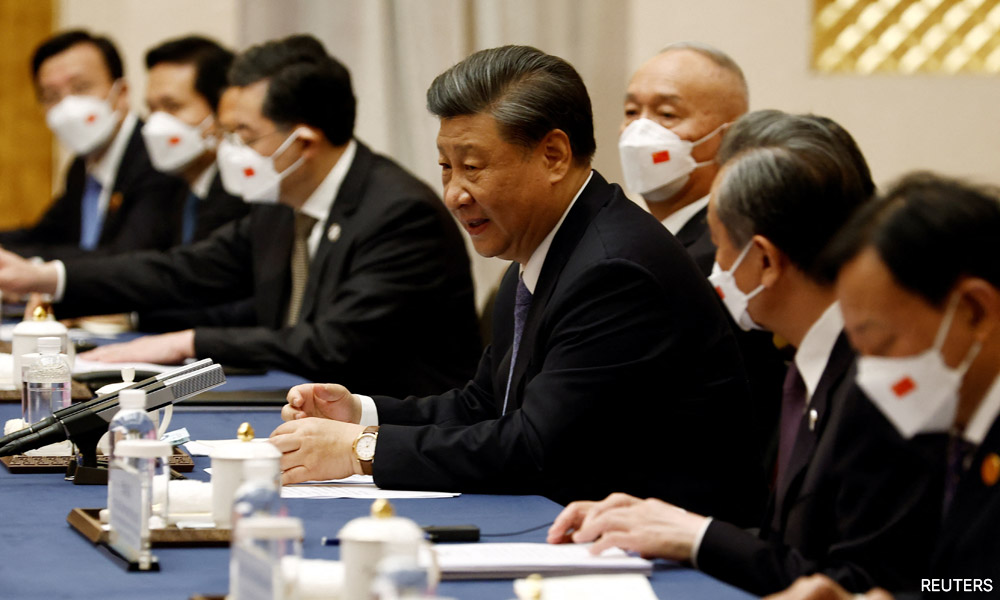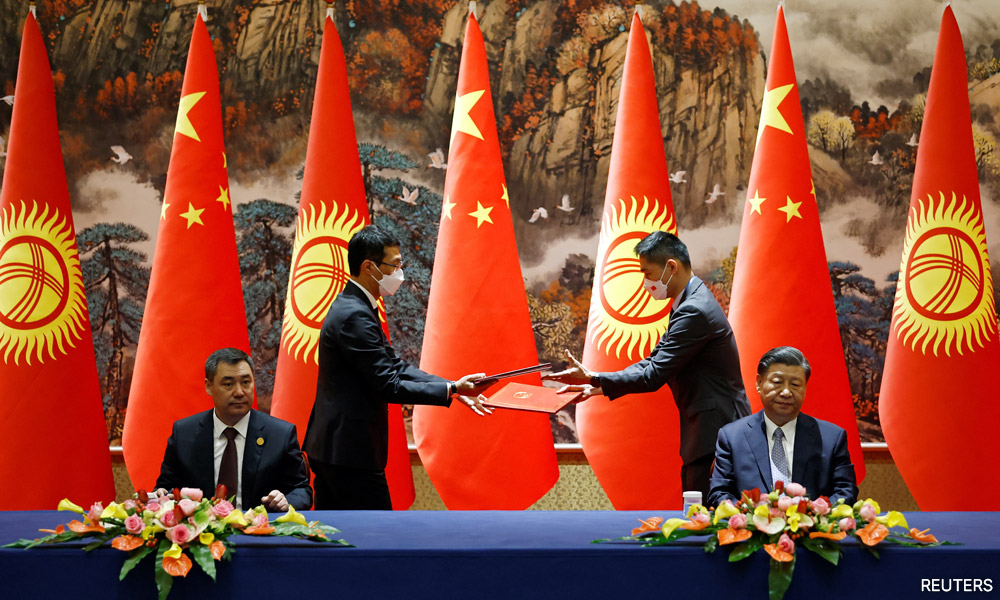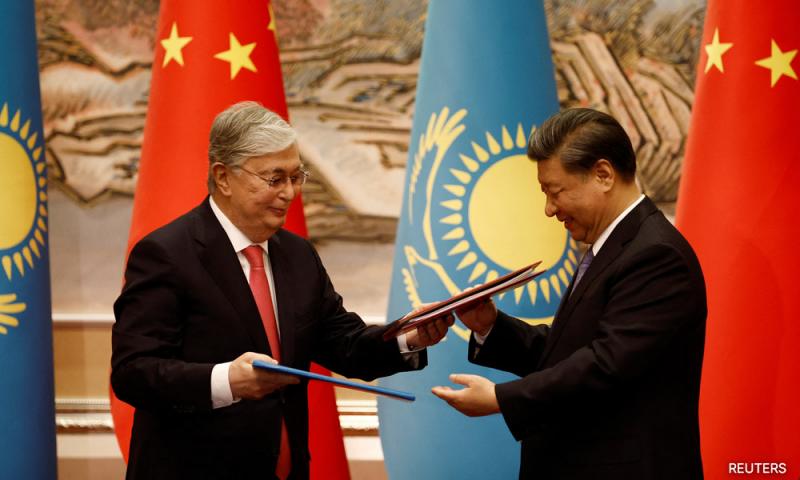Central Asia seeks deeper regional ties with China
Central Asian heads of state converged in China's historic city of Xian today for one-on-one with Chinese leader Xi Jinping to seal pledges of "enduring" friendship, paving the way for a summit expected to result in a regional pact with Beijing.
The bilaterals set the stage for a group huddle tomorrow, the first in-person gathering of the six leaders, where Xi will deliver an "important" speech, according to China's Foreign Ministry. An "important" political document will also be signed.
Across the city of Xian, from where the ancient Silk Road linked imperial China with civilisations to its west over a millennium ago, banners, billboards and even taxi signs were set up to promote the summit, with many in both Chinese and Russian.
China is intensifying its economic and political engagement with the former Soviet states on Chinese soil as its ally Russia channels what remaining resources it has into the war in Ukraine.
The first head of state to arrive in Xian was President Kassym-Jomart Tokayev of Kazakhstan - China's largest trading partner in Central Asia - with his face-to-face meeting with Xi yesterday, ending with a deal to build "enduring friendship" and share "weal and woe".
"We have a common goal - to intensify bilateral relations," Tokayev told Xi.
"We are also united by the desire to strengthen regional and international security and cooperation."

The two sides agreed to take measures to ensure the safe and stable operation of the Kazakh section of the China-Central Asia natural gas pipeline, and also deepen oil and uranium cooperation.
Both Xi and Russian President Vladimir Putin wished Tokayev a happy 70 birthday yesterday. Tass news agency said Putin called the Kazakh president and affirmed the ties of their countries.
Setting the collaborative tone for other bilateral meetings - where China will seek deeper cooperation with other Central Asia states in its quest to achieve greater food, energy and national security - Kyrgyzstan's President Sadyr Japarov told Xi that he was keen to deepen trade, economic and investment links.
"There are no political disagreements or unresolved issues between our countries," Japarov said.

Two-way trade between China and Central Asia hit a record US$70 billion last year, with Kazakhstan leading with US$31 billion. Kyrgyzstan followed with US$15.5 billion, Turkmenistan with US$11.2 billion, Uzbekistan with US$9.8 billion and Tajikistan with US$2 billion.
"We've been supporting exactly this type of integration between China and Central Asia," said Albert Park, chief economist at the Asian Development Bank.
"Under that framework, we're trying to reduce trade barriers among the countries, harmonise trading standards to promote better integration, and have more forums where government officials can talk and try to develop standards to promote more trade," Park in Beijing.
Xi's show of solidarity with Central Asia at the summit conspicuously coincides with a meeting of the Group of Seven leaders in Japan, where Beijing's use of "economic coercion" in its dealings abroad is expected to be on the agenda.
- Reuters
RM12.50 / month
- Unlimited access to award-winning journalism
- Comment and share your opinions on all our articles
- Gift interesting stories to your friends
- Tax deductable

 Reuters
Reuters